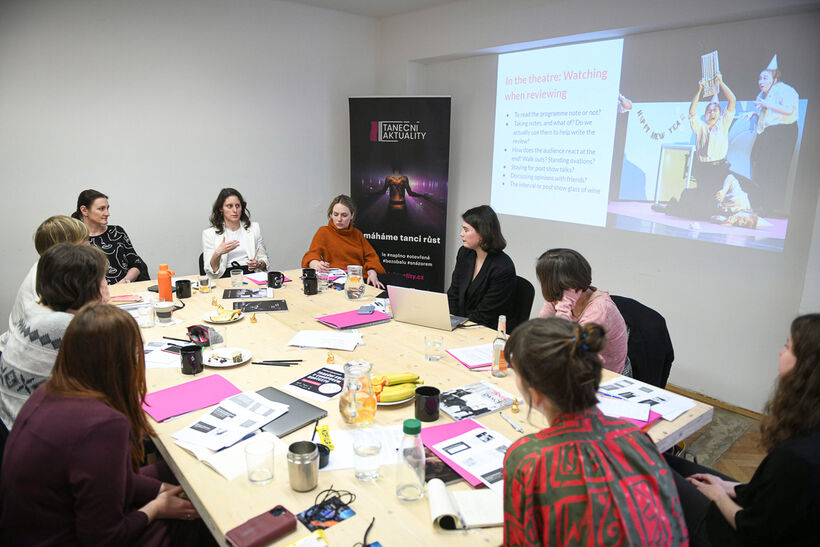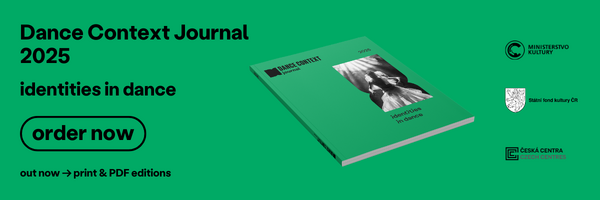I am a dance critic. I am a member of an endangered species
The critic has never been a particularly popular person. In his poem Rezensent, published in 1774, Johann Wolfgang von Goethe writes: ‘Schlagt ihn tot den Hund! Er ist ein Rezensent.’ (‘Beat the dog to death! He is a reviewer.’). Or let me quote a letter by the composer Erik Satie, written in 1917 after the première of his ballet Parade to music critic Jean Poueigh, or, as Satie called him, ‘Monsieur Fuckface Poueigh, Famous Pumpkin and Composer for Nitwits’. The letter was short and concise:
‘Lousy asshole, this is from where I shit on you with all my force.
Erik Satie’. (Usher 2020).
This was the last of three letters sent by Satie to the reviewer over the course of one week. Poueigh sued the composer for slander and Satie was sentenced to eight days in jail. The verdict is still pending in a more recent case, in which choreographer Marco Goecke went much further than just ‘talking shit’. He smeared dog faeces on dance critic Wiebke Hüster’s face after she had written a review of his piece, a review that he apparently found unbearably offensive. (Spoiler alert: it was not.)
On the other hand, being a critic was, for a long time, an acclaimed job. From the 1770s, theatre reviews were regularly published around Europe; from the early 1800s being a critic became a widespread and respected profession. The period between 1945 and the early 2000s is usually considered ‘the golden age’ of theatre criticism. During these decades, many daily newspapers in England and throughout Europe employed full-time theatre critics, while dance and theatre journals also flourished (Trencsényi 2022).
But lately, mainstream press coverage of theatre and dance shows has been fading. Daily newspapers are less and less likely to publish performing arts reviews, especially in some countries (like Hungary), while many print journals are closing shop. The prestigious British Dancing Times ceased publication in September 2022; Hungary’s most renowned theatre journal Színház (Theatre), that had existed for 55 years, published its last print issue in December 2022. Lyn Gardner, who was named the most trusted reviewer in a survey on art critics conducted by The Stage magazine, was dropped by The Guardian in 2018. She mentioned that during her last three years at the paper, the number of reviews she was commissioned to write declined every year (Gardner 2018a).
.jpg)
In 2020, journalist David Herman mourned ‘the death of theatre criticism’ in an article. In his piece he mentioned several ‘legendary’ critics (all male) who had retired or died recently and asked: ‘Where are the new, young voices in theatre criticism?’
When I looked around the room during the cross-European workshop on dance criticism organised by Czech Dance News and saw all the young (female) reviewers; or when I think of the growing number of writers each year at Springback Academy, an initiative that has been pivotal in my own my own journey to becoming a dance critic, I think the question is not ‘Where are the new, young voices?’ The question is rather: ‘What are their (our) prospects?’
In an age when online and social media is so prevalent, it might be assumed that critics have it easier than ever – since they have countless platforms, they have new formats to experiment with, they can be more independent, more creative even. But it’s a double-edged sword. No job is sustainable without financial and moral recognition. With the disappearance of full-time jobs for critics, and without funds that reflect the changing media landscape, for most people being a critic becomes a side job at best; a ‘hobby’ at worst. Moral recognition – or even relevant feedback – is similarly scarce among the endless pool of voices. As Bret Easton Ellis puts it in his excellent collection of essays White: ‘When everybody claims to be a specialist, with a voice that deserves to be heard, this actually makes each person’s voice less meaningful.’ (Ellis 2019).
.jpg)
But what, then, makes a critic’s opinion authoritative? I find dance writer Octavio Roca’s answer to be particularly accurate: ‘Knowledge, experience and passion. (…) A critic's passion must be a given. Criticism must be willing to make a case for art that matters, not just for ways to pass the time’ (Roca 1998). Well, knowledge and experience are hard to gain; passion is hard to maintain. But just as there is no good art without passion, there is no good writing without passion either. This is also why, at least in my opinion, AI will never replace the critic – even if an increasing number of people think it could, or should. AI will never be passionate about art.
So how can theatre and dance criticism become more sustainable in our radically changing times? Lyn Gardner has some ideas: ‘(…) theatre and funders have to stop relying on old media and think creatively about how they can support new platforms and critical voices both on a local and national scale.’ (Gardner 2018b).
Until that happens, one can only hold on to Octavio Roca’s words: ‘As Bertolt Brecht famously noticed, art is not nice. Neither is criticism. But both are necessary.’ I hope that all the new, young voices will be able to believe this.
References:
Ellis, Bret Easton (2019), White, New York: Alfred A. Knopf.
Gardner, Lyn (2018a), “The Future of Criticism Lies With Its Audience”, in The Stage, 23 July 2018: https://www.thestage.co.uk/opinion/lyn-gardner-the-future-of-criticism-lies-with-its-audiences
Gardner, Lyn (2018b), “On Leaving The Guardian and Where Next for Criticism”, in The Stage, 21 May 2018: https://www.thestage.co.uk/opinion/lyn-gardner-on-leaving-the-guardian--and-where-next-for-criticism
Herman, David (2020), “The Death of Theatre Criticism”, in The Critic, 5 August 2020: https://thecritic.co.uk/the-end-of-an-era-in-british-theatre-criticism/
Roca, Octavio (1998), “The Critic’s Lonely Journey / In an age of indulgences having high standards can be seen as an unforgivable sin”, in SFGATE, 23 August 1998: https://www.sfgate.com/entertainment/article/The-Critic-s-Lonely-Journey-In-an-age-of-2995646.php
Trencsényi, Katalin (2022), “Színház, kritika és elmélet – avagy a nézés formái”, in Színház.
Usher, Shaun (2020), Letters of Note: Music. Mancherster: Canongate Books.
Editor's note: This text was written as part of the project Dance Criticism in a European Context. The project was supported by the European Union and the Ministry of Culture through the National Recovery Plan.




.jpg)
.jpg)
